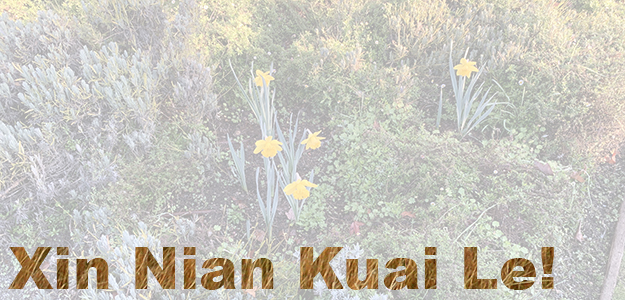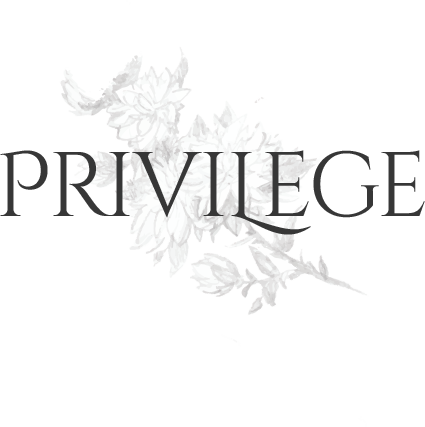
Happy Lunar New Year! Specifically, Happy Lunar New Year in Mandarin!
On top of wishing you well, I wanted to ask, how do you extend greetings for holidays you don’t celebrate, in languages that you possibly don’t speak? My close circle includes people are Jewish, Catholic, Buddhist, Protestant as well as those who believe in the-universe-is-great-and-magical. Some come from families who came in turn from Asia, Latin America, the Middle East, the Caribbean, the United Kingdom, and the United States. Some speak, in addition to English, Portuguese, Hebrew, Spanish and Mandarin, not to mention a dialect the name of which I do not know.
In recent years I’ve taken to texting specific holiday greetings to my dear ones, first making sure I know the right words. But I’ll also use these greeting for microinteractions, if I’m 100% sure where the person I’m talking to comes from.
Picking up Chinese food yesterday, at a family-owned restaurant where I’ve been many times before, I said to the man at the register, “Xin nian kuai le!” I knew his family was from Hebei, having had that conversation (in English, to be sure) with one of the sons, so I knew a Mandarin greeting was appropriate. Had it been a Southern Chinese restaurant, or I was 100% certain they spoke Cantonese, I’d have said, “Gong hei fat choy!”
In both cases, I’m surely mangling the pronunciation. The Chinese language, both Mandarin and Cantonese, relies on tones, a rising, falling, level pitch, to create the full meaning of sound-alike syllables. I can’t remember the tones to save my life, except I’ve been told I order “gai lan,” “Chinese broccoli,” very correctly. Usage makes perfect, and that’s always been my go-to shared lunch order.
The thing is, the man at that cash register smiled anyway. Whether it was a, “Wow, this old lady is butchering Happy New Year,” kind of smile or a, “Who knew she’d even try, that’s fun,” grin, I don’t know and I didn’t care. I believe that if you do your homework, and then, this is important, shoulder any embarrassment for your failures yourself rather than insisting on apologies and forgiveness by the other, at the very least you’ve done no harm.
I could be wrong. What do you think? I am sure this community can improve upon my practice. Gong hei fat choy! Anyone know the Lunar New Year greeting in other languages? Have an excellent weekend all around!

24 Responses
We are invested in the Chinese New Year celebration as we have a daughter in law who grew up in China and is Chinese. And my husband and I have grandparent names that are Mandarin–YehYeh and NaiNai–names we didn’t choose, but were given by our granddaughter when she was one year old. We love the names she calls us. I am well aware of the tones involved in speaking Mandarin–and I don’t even try! But, I applaud you for doing so! I think it shows an ability to embrace other cultures because these cultures are important to those close to you–and a willingness to look beyond your own traditions! As for me, I send email greetings with illustrations showing joy in the Year of the Dragon.
I love the idea of email greetings with Dragon illustrations, as well as your sweet grandparent names. I try because I’ve always loved languages, and as you say, but these are important to people who are important to me.
My feeling is – never turn down a holiday !
Xièxiè nǐ de zhùfú.
Zhù nǐ lái nián hǎoyùn bìng qǔdé jùdà chénggōng!
Never turn down a holiday;). Xiexie ni for that!
You’re meeting people where they are. I think that’s lovely.
Thank you. It might be a little bit more like I’m meeting people in the general direction of where they are! But I hope my intent is clear.
I think it is important to do our best to see people and honor them and you are doing your best. Attempts at sharing greetings, especially when they are not our own, seems to me to be a part of honoring and acknowledging others.
Thank you. I so hope so.
When a Chinese student joined me on our elevator’s ground floor, I said “shin nee in quai low”.
He stared at me, looking puzzled, until we reached an upper floor. Then his expression brightened and he said, “You said ‘Happy New Year’. You speak Chinese very well!”
Well enough for him to figure it out eventually. :-)
Ha! What a great story. What a nice gesture on your part, and what a kind reply he gave:)
I can see Mardel’s and Maria’s points ; however there can be problems with some more religious greetings which are really meant for those who share , at least partly in the reason for marking important days/times/occasions . I can think of 2 examples . I am Muslim and the fast of Ramadhan will be starting in early March . When it begins Muslims may greet each other with “Ramadhan Mubarak” , when it ends with “Eid Mubarak” . Mubarak means “congratulations” and yes is indeed related to Obama’s first name . I remember a Christian priest greeting me like that and my feeling it was all wrong , somehow altho’ I am sure he meant well .
A Christian example I can think of was a Greek Orthodox priest outside his church greeting his parishioners with “The Lord is Risen” and their response “He is risen indeed!”
Rukshana, this is a good point and thank you for making it. Is there a more secular greeting that non-Muslins could or should use to mark this time? I often see non-Muslims referring to Eid, in social media, but I have no idea if they are doing it in a way that feels welcome.
I appreciate when someone who isn’t from my ethnic background acknowledges my culture’s special holidays and customs. I makes me feel seen. Gung Hee Fat Choy, Lisa!
I am so glad to see these other holidays emerging from their communities into our national consciousness. Gung Hee Fat Choy, Jane!
I try very hard to honor the celebratory events and greetings of each person with whom I come into contact. This started for me when I was young because my dad was Indigenous from two separate tribes (Federal Indian schools), and my mom was Western-Euro descended white. You and I share careers in Silicon Valley, which was rich with people from different backgrounds and traditions. It’s an ongoing process, but we’ve come a long way from my suburban California childhood, in which the assumption was that everyone was a white Christian. When we were kids, my Catholic mom worked hard to show us this wasn’t true by taking us to other churches; making other religion’s feasts at our home, including the accompanying rituals; and attending public celebratory events put on by other groups. Chinese dialects, just like my grandfather’s Lushootseed, and my grandmother’s Anishinaabemowin, are intimidating to me because my mouth muscles aren’t trained in their usages, but I do try.
Happy Lunar New Year/Gong hei fat choy! I’m especially excited for this Dragon year since I’m a Dragon, though I’ve read up on the year, and it looks to be a challenging one. I was hoping for some Dragon luck. Here’s hoping there is some anyway for each of us.
I wish you Dragon luck, and that all the traditions of all your cultures stand by you this year!
I applaud your language skills. I butcher other languages, no ear for them at all, so I am very shy and worry I’ll be insulting if I try to speak…even a greeting. But I do acknowledge other cultures holidays and enjoy it….but in English :)
I’m guessing that the people I try to speak Chinese to probably understand you speaking English better than they do what I’m garbling LOL
Hello Lisa, Honestly, with the contortions that Chinese transliterations make you go through, it is much easier to learn the characters. Somehow, there is a hype that they are virtually impossible to learn, but there is a system, and the parts of the characters contain clues to pronunciation and meaning. Also, one transliteration can lead to many Chinese characters, so in the end they are more confusing. The traditional characters are really easier to learn, compared to the simplified. But we can still keep the transliterations on the side to remind us of the tones!
.
So Happy New Year, 新年快樂, 恭喜發財, 龍年好 (Happy Dragon Year!), 等等! (xīnnián kuàilè, gōngxǐ fācái, lóng nián hǎo, děng děng)!
–Jim
Happy New Year, Jim! And that’s such an interesting perspective on learning written Chinese, a completely new way of thinking about it, at least for me. Thank you:)
I applaud your efforts to be friendly and inclusive. When traveling outside of the US and attempting to use my limited few words of greeting and thanks, I seem to never get it exactly right and the response can be amusing. Surprise, eye-roll and grin are all common responses. Making the effort seems right to me. That said, hopefully nobody gets offended.
You make the effort. We make the effort. That has to be better than not trying at all!
As part of a military family I lived in Europe for many years when I was young. I did go to a French school for several years but I’ve mangled just about every other language there is. I spent an entire summer in Germany saying “please ” instead of “thank you”. No one corrected me and everyone was very kind. Kind of an aside, several years ago a friend from Viet Nam invited me to her temple to celebrate Chinese New Year. I still have the little lucky coin envelope I was given that night, and this year I texted her a picture of it with a thank you for that invitation. It’s just a nice memory. I feel so fortunate to celebrate cultures and friends through holidays that are not my own and I know any effort I make is appreciated.
So lovely that you hung onto your lucky coin envelope. The hong bao, in Mandarin. I can imagine your childhood moving around gave you a real sense of value of different cultures.
Comments are closed.